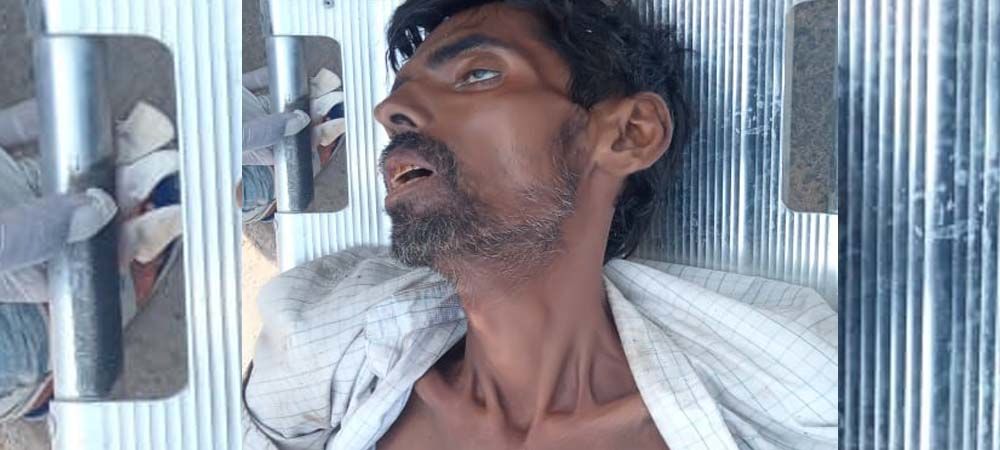Ramji Mahto, 45, lived in Delhi. On March 24, Prime Minister Narendra Modi announced a three-week nationwide lockdown to contain the spread of the coronavirus pandemic. Many like Mahto were stuck in big cities where they didn’t have food or shelter.
Probably, to escape starvation, on April 3, Mahto started walking back home — to Begusarai in Bihar. The distance between Delhi and Begusarai is 1,197 kms.
However, on April 16, an exhausted and starving Mahto died in Varanasi. Mahto’s family, back in Bihar, is so poor that they didn’t have money to cremate Mahto. The Varanasi Police did the needful.
Gaurav Pandey, the station in-charge at Rohniya police station in Varanasi was the last person to meet Mahto.
He informed Gaon Connection over the phone: “On April 16, someone informed me that a daily wage earner was lying on the road. When I reached there, he was panting. I called for an ambulance. When the ambulance arrived, they were reluctant to touch him thinking he may have corona. I requested them, and they reluctantly agreed. But Mahto passed away as soon as we put him in the ambulance.”
He added: “When I got in touch with his family, they said they didn’t have enough money to come all the way to Varanasi, or to cremate him. Mahto’s test shows that he was corona-negative. We are waiting for the post mortem report. Only then we will come to know the exact cause of his death.”
As per Google Maps, the distance between Delhi and Begusarai is more than 1,100 kms. It would have taken Mahto 215 hours to reach Begusarai from Delhi. Mahto had already covered a distance of 850 kms — 375 kms more, and he would have reached home. By the way, for how many hours can you walk in a day?
For a living, Mahto drove a water tanker in Delhi and also worked as a labourer. He spoke to his sister Nila Devi before he left from Delhi.
When Gaon Connection contacted her, she said: “When my brother had called, he had informed us that he wasn’t feeling too well. He had stopped eating and was feeling very weak. He wasn’t getting any work. He had called me on April 13. He said he was in Varanasi. I had told him not to leave Delhi as everything was shut. But he didn’t listen. He didn’t have a penny when he had left.”
Mahto’s sister lives in a village called Kumhra in Begusarai with her in-laws. His parents live close by. Ramji was the eldest among his five siblings and was living in Delhi for the past 10 years.
His father, Ram Chandar Mahto, said: “He came home just once in these 10 years. He would visit his sister often. He had called her up from Varanasi and was asking for money. One of my sons works in Punjab and is stuck there, another son is unwell and is at home. The Varanasi Police had called me up. They said they would arrange for my travel. How could I go? I don’t have money to eat. I didn’t have enough money to cremate my son.”
Ram Vilas Mahto, his brother, said: “My brother was the only one in the family who was earning. Every month, he would send Rs 4,000-5,000. I had spoken to him about 10 days back. He was worried as he wasn’t getting any work or food to eat. He was coming back home after nine long years.”
When we spoke to Pushpraj, an independent journalist and a writer based in Delhi, who has been covering labourers-related issues for long, he said: “Ramji Mahto didn’t die a natural death. He died because of the ‘lockdown disaster’. Had the police put him in jail for defying the lockdown, he would have survived. His death should be registered as an accident — death caused due to starvation and exhaustion because of the lockdown disaster.”


















